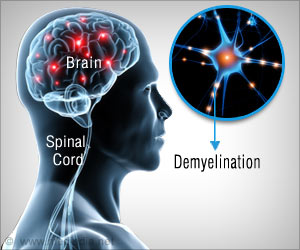A protein PARC/CUL9 helps neurons and brain cancer cells override the biochemical mechanisms that cause cell death in other cells, researchers have found

The discovery will lead to new investigations of brain cancer treatments and provides insight into Parkinson's disease, including a potential new research tool for scientists.
"PARC is very similar to Parkin, a protein that's mutated in Parkinson's disease," said Mohanish Deshmukh, a professor of cell biology and physiology and senior author of the Science Signaling paper. "We think they might work in tandem to protect neurons."
If so, researchers can investigate the interplay between these proteins to create better drugs to treat the second-most prevalent neurodegenerative disease after Alzheimer's disease.
Vivian Gama, PhD, a postdoctoral fellow in Deshmukh's lab, led the experiments in cell cultures and animal models. First, she used external stimuli to promote the damage of mitochondria – the energy sources for cells. In most cell types, when mitochondria are damaged, they release a protein called cytochrome c, which triggers a cascade of biochemical steps that end in cell death – a process known as apoptosis.
Working with neurons, though, Gama found that the protein PARC/CUL9 blocked this process; it degraded cytochrome c, halted apoptosis, and allowed for long-term cell survival. "In this setting, we want PARC to do that because we want neurons to survive as long as possible," said Gama, first author of the Science Signaling paper.
Advertisement
Deshmukh and Gama's work could lead to an alternative way to study Parkinson's disease. Other researchers have created mouse models that lack the Parkin gene, but Gama said these models don't have many of the hallmark symptoms that human patients have, making the model less than desirable for researchers. "Our hypothesis is that in the absence of Parkin, PARC still does the job," Gama said, "as it may allow cells to survive."
Advertisement
They will also investigate PARC as a target for cancer treatment.
"We tested several cancer cell lines and found that PARC degrades cytochrome c in medulloblastoma, a cancer of the central nervous system and in neuroblastoma, a cancer of the peripheral nervous system," Gama said. "Not all cytochrome c is degraded; there are likely other factors involved. But PARC is an important player."
When Gama and colleagues triggered the apoptotic process in brain cancer cells, they found that PARC allowed the cells to survive. When PARC was inhibited, the cells were more vulnerable to stress and damage, which means they could be more vulnerable to compounds aimed at destroying them.
Deshmukh said, "We show that brain cancer cells co-opt PARC to bypass apoptosis in the same way that neurons do and for the exact same purpose."
Source-Eurekalert













